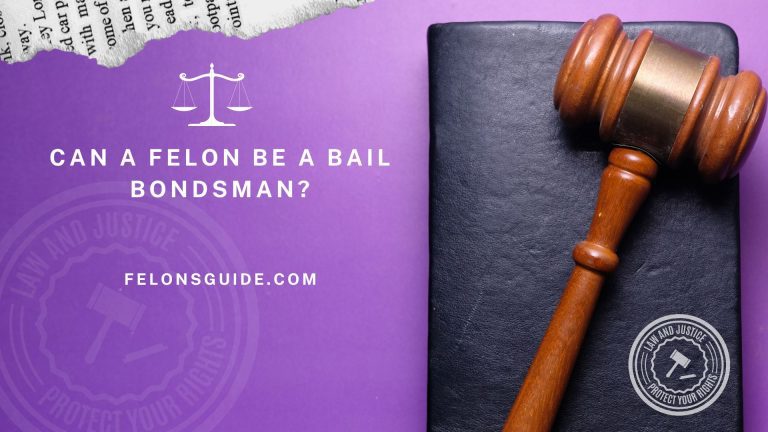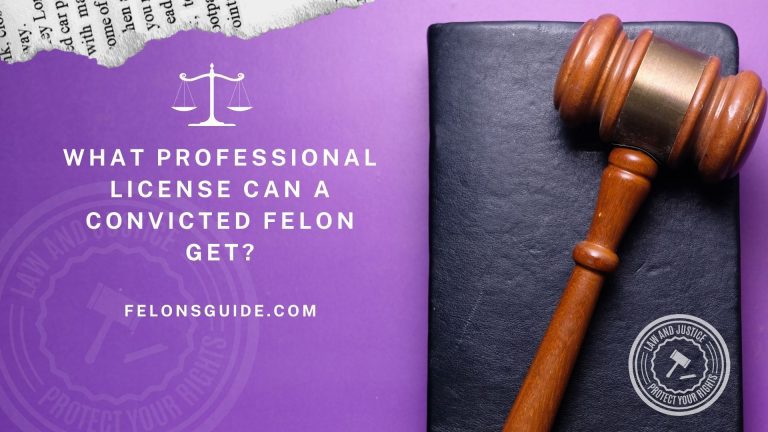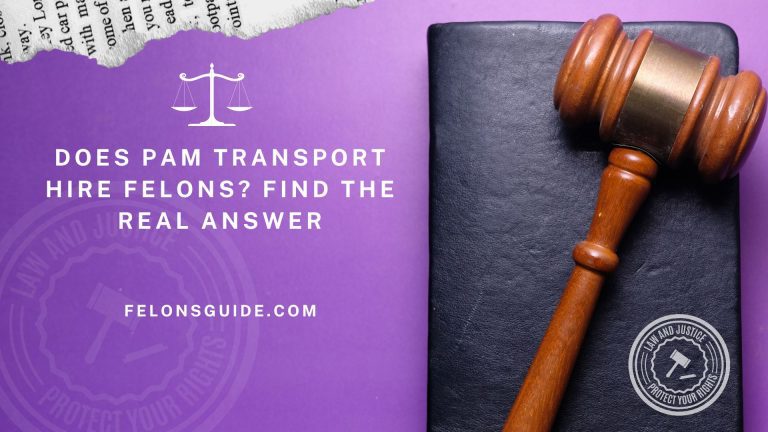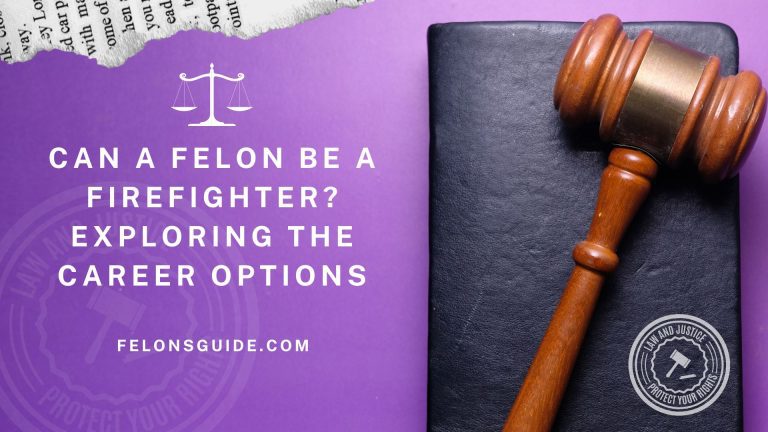Can a Felon Become a Phlebotomist in 2024?
The field of healthcare offers numerous opportunities for individuals seeking a fresh start, including those with a felony record. Phlebotomy, the practice of drawing blood for medical testing and donation, is a rewarding and in-demand career option. If you’re wondering whether a felon can become a phlebotomist in 2024, the answer is a resounding “Yes!” In this article, we’ll delve into the world of phlebotomy, the steps to becoming a phlebotomist, and how felons can pursue this path with determination and ambition.
What is a Phlebotomist?
A phlebotomist is a healthcare professional trained to draw blood from patients for medical testing, transfusions, research, or donation purposes. They play a crucial role in the healthcare system, ensuring the accuracy of diagnostic tests and aiding in patient care.
Also Read: Can Felons Own a Paintball Gun? Understanding the Legalities
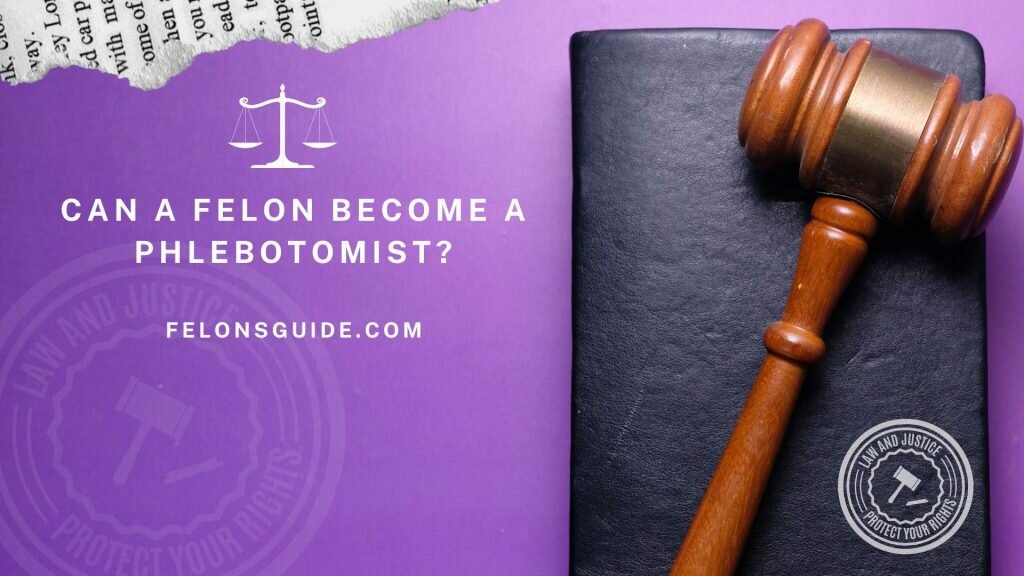
How to Become a Phlebotomist?
Becoming a phlebotomist doesn’t require an extensive educational background. The first step is to obtain a high school diploma or GED equivalent. Many community colleges and vocational schools offer phlebotomy training programs, typically lasting a few months. These programs teach essential skills, such as venipuncture techniques, patient interaction, and laboratory safety.
Can a Felon Become a Licensed Phlebotomist?
Absolutely! Having a felony conviction doesn’t automatically disqualify individuals from becoming licensed phlebotomists. While certain states and employers might have specific regulations, the healthcare industry as a whole tends to be open to hiring qualified candidates with past convictions. Felons should focus on their dedication to rehabilitation, job readiness, and passion for patient care when pursuing this career path.
Also Read: Can a Felon be a Bail Bondsman?
How to Find Medical Work as a Felon?
Finding medical work as a felon can be challenging, but it’s not impossible. Networking plays a crucial role here; connecting with people who can vouch for your skills and character can increase your chances. Consider seeking opportunities at smaller clinics or healthcare facilities, as they may be more flexible in their hiring policies. Volunteering or interning in a medical setting can also help you gain experience and build a positive reputation.
Reasons for Becoming a Healthcare Worker:
Many felons find purpose and stability in healthcare careers. The chance to help others, contribute to society, and pursue a fulfilling and respected profession motivates them to pursue a career in phlebotomy.
Is It Risky to Be a Phlebotomist?
Like any profession, phlebotomy has its risks. Potential hazards include accidental needlesticks and exposure to infectious diseases. However, with proper training and adherence to safety protocols, the risks can be minimized significantly.
Can You Be a Phlebotomist with a Felony in Wisconsin?
In Wisconsin, a felony conviction does not automatically bar individuals from becoming phlebotomists. The state evaluates applicants with criminal records on a case-by-case basis, considering factors such as the nature of the offense, rehabilitation efforts, and time since the conviction. This open-minded approach allows felons a chance to pursue a meaningful career.
What Credentials Make You a Good Phlebotomist?
To excel as a phlebotomist, essential skills include attention to detail, empathy, excellent communication, and the ability to handle stressful situations calmly. Obtaining certification from a recognized organization, such as the National Healthcareer Association (NHA) or the American Society for Clinical Pathology (ASCP), can enhance your employability and showcase your commitment to the profession.
Can You Move Up from Being a Phlebotomist?
Absolutely! Phlebotomy can serve as a stepping stone to various healthcare careers. With experience and further education, phlebotomists can advance to roles like medical laboratory technician, medical assistant, or even nursing.
Conclusion:
A felony conviction should not deter anyone from pursuing a fulfilling career in phlebotomy or any other field of healthcare. Aspiring phlebotomists with a criminal record can find success by focusing on their skills, dedication to patient care, and commitment to personal growth. The healthcare industry welcomes individuals from diverse backgrounds, recognizing the potential for growth and redemption. By seizing opportunities and continuously improving, felons can carve a rewarding path in the healthcare sector as licensed phlebotomists.
